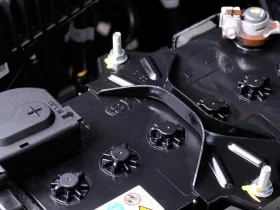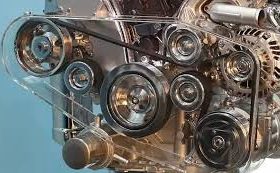The anti-lock braking system (ABS) is an important safety feature in modern cars that helps prevent wheel lock-up during braking, allowing the driver to maintain steering control.
However, many drivers are unsure whether or not their car is equipped with ABS. If you’re unsure about the presence of this important safety feature in your vehicle.
The importance of Anti-lock Braking Systems (ABS)
Now that you are aware of what ABS is and how it functions, it is crucial to understand the importance of this feature in your vehicle.
The main purpose of ABS is to prevent the wheels from locking up when you apply the brakes, especially in emergency situations. This ensures that your car remains stable and you can still maintain control and steer while braking.
Without ABS, the wheels could potentially lock up, causing the tires to skid and making it extremely difficult to maneuver your vehicle. With ABS, your car’s braking performance is enhanced.
Knowing that your car has ABS gives you the peace of mind that you have an additional layer of protection when it comes to braking.
Key signs that your car is equipped with ABS
If you’re unsure whether your car is equipped with Anti-lock Braking Systems (ABS), there are a few key indicators that can help you determine its presence.
1. ABS light:
One of the most obvious signs is the presence of an ABS light on your car’s dashboard. When you start your vehicle, the ABS light should illuminate briefly and then turn off. If it stays on or comes on while driving, it is an indication that your car has ABS.
2. Wheel speed sensors:
Another telltale sign of ABS is the presence of wheel speed sensors. These sensors are typically located near each wheel or on the brake calipers. If you notice wires leading to your wheels or sensors mounted on your brake components, it is likely that your car is equipped with ABS.
3. Owner’s manual:
Finally, consulting your car’s owner’s manual can provide valuable information about the features and specifications of your vehicle. Look for any mention of ABS or braking systems to confirm its presence.
Testing the functionality of ABS in your car
Testing the functionality of ABS in your car is an important step to ensure that it is working properly. While driving on a safe and open road, find an empty stretch where you can safely apply the brakes.
When you need to make an emergency stop, firmly press down on the brake pedal, but be careful not to lock the wheels. If your car has ABS, you will feel a pulsating sensation through the brake pedal.
If you do not feel any pulsation or the brakes lock up, it may indicate a malfunction in the ABS system. In this case, it is recommended to have your car inspected by a qualified mechanic to diagnose and repair any issues.
Consulting a professional for ABS
While testing the ABS functionality of your car can give you an initial indication, it is always recommended to consult a professional for a thorough inspection and maintenance. A qualified mechanic has the expertise to diagnose any potential issues.
During a professional inspection, the mechanic will conduct a comprehensive examination of the ABS components, including sensors, control units, and hydraulic valves. They will also check for any warning lights on the dashboard and run a diagnostic scan to identify any error codes.
Professional mechanic can perform routine maintenance tasks such as brake fluid flush, sensor calibration, and brake pad inspection. Regular check-ups can prevent any potential ABS malfunctions and ensure your safety on the road.
Your safety comes first. When it comes to your car’s ABS system, always consult a professional for inspection and maintenance to keep it in top-notch condition.
Benefits of having ABS in your vehicle
Now that we have discussed how to tell if your car has ABS and the importance of getting it professionally inspected, let’s delve into the benefits of having ABS in your vehicle.
1. Increased Stopping Power:
The primary function of ABS is to prevent the wheels from locking up during braking. This allows the driver to maintain steering control and stop the vehicle in a shorter distance, even on slippery surfaces.
2. Enhanced Stability:
ABS helps to maintain stability and prevent skidding or swerving when sudden braking is required. It distributes brake force evenly to all wheels, ensuring maximum traction and control.
3. Quick Response Time:
ABS reacts quickly to changing road conditions and adjusts the brake pressure accordingly. This rapid response time significantly reduces the risk of accidents and provides a safer driving experience.
4. Avoidance of Tire Damage:
With ABS, the risk of flat-spotting or tire damage due to wheel lock-up is minimized. This translates into cost savings as you won’t have to replace your tires as frequently.
5. Increased Resale Value:
Having ABS in your vehicle can add value when it comes time to sell or trade-in. As ABS becomes a standard feature in most modern vehicles, potential buyers often prioritize vehicles equipped with this safety feature.
Conclusion
Continuing from our previous section on the benefits of having ABS in your vehicle, it is evident that this crucial safety feature provides increased stopping power, enhanced stability, and a quick response time.
To maintain your car’s ABS system, there are a few key tips to keep in mind. Firstly, it is important to regularly check the ABS warning light on your dashboard, as any sudden changes or malfunctions should be addressed immediately.
Inspecting and replacing worn out brake pads and rotors is also essential for the proper functioning of your ABS system. It is recommended to consult with a professional mechanic who specializes in ABS systems to conduct regular inspections and address any issues that may arise.
FAQs:
Q: Can I check if my car has ABS without performing a test drive?
Yes, you can visually inspect your car for the ABS indicator light on the dashboard. If the light illuminates momentarily when starting the car, it indicates the presence of ABS.
Q: What should I do if the ABS indicator light stays on while driving?
If the ABS indicator light remains illuminated while driving, it could indicate a problem with the ABS system. It’s essential to have your car inspected by a qualified technician to diagnose and address any issues.
Q: Are there any visual signs of ABS components on my car?
ABS sensors are typically located near each wheel, and you may see wires leading to these sensors. Additionally, ABS-equipped cars may have specific warning signs related to the ABS system, such as unusual noises or vibrations during braking.
Q: How often should I have my car’s ABS system inspected?
It’s recommended to include ABS system inspection as part of your regular vehicle maintenance schedule. Consult your car’s owner’s manual or a qualified technician for specific recommendations based on your vehicle’s make and model.









Leave a Reply